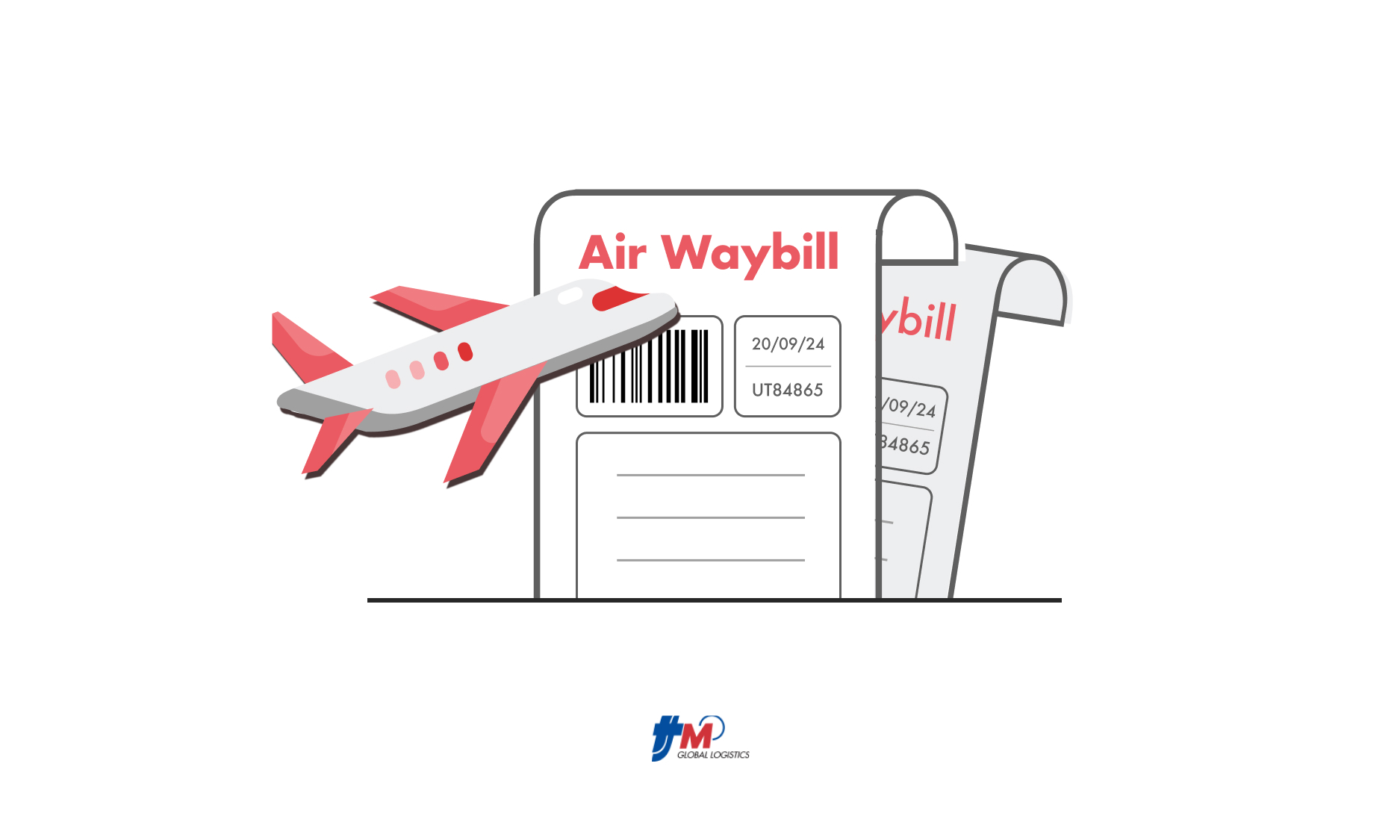What is an Air Waybill (AWB)?
23 September 2024If you’ve ever received or sent a parcel, you’ve definitely seen or even filled out an air waybill before. In the world of logistics, the air waybill is a critical document that plays a vital role in ensuring the smooth transportation of goods by air. This essential piece of paperwork holds all the necessary information about your shipment, acting as a guide throughout its journey. Here, we’ll explore what an air waybill is, its significance in shipping, and why it’s important for businesses that are engaged in international trade.

What is an Air Waybill (AWB)?
An air waybill (AWB), also known as a consignment note or dispatch note, is a legally binding document issued by the airline or freight forwarder responsible for transporting your goods. It requires you to fill in important information that can help the courier to successfully ensure that the item or product reaches the recipient safely. This document contains crucial details about your shipment, such as the origin, destination, description of the goods, flight details, and the terms and conditions of the transportation agreement.
The Importance of the Air Waybill in Logistics:
- Streamlined Documentation: Proper documentation is essential due to the complexity of logistics. An AWB consolidates all the necessary information about your shipment into a single document. This streamlines the process, making it easier for everyone involved to handle and process your cargo efficiently.
- Smooth Customs Clearance: When you’re shipping goods cross-border, you’ll have to navigate customs procedures. An AWB provides customs officials with all the pertinent information about your shipment, including the contents and value of the goods. This makes the customs clearance process far smoother, reducing delays and ensuring a hassle-free passage for your cargo.
- Real-time Tracking: In today’s fast-paced world, real-time tracking of shipments is crucial regardless of what the good or product is. An AWB comes with a unique tracking number that allows you and your customers to monitor the progress of your goods at every stage of their journey. This visibility provides peace of mind and allows you to keep your customers in the know about the whereabouts of their shipments.
- Proof of Contract: An AWB serves as a legal proof of the contract between you and the carrier. It outlines the terms and conditions of the transportation agreement, ensuring that both parties are aware of their responsibilities. This transparency builds trust and accountability, fostering a successful partnership.
- Claims and Insurance: While no one wants to encounter mishaps during transportation, accidents can still sometimes happen. In cases like these, an AWB plays a crucial role in the claims process. It contains essential information about the shipment’s condition at the time of acceptance, facilitating the filing of claims with the courier or insurance company.
- Smooth Handovers: During its journey, your shipment may pass through multiple hands. An AWB acts as a guiding document, providing clear instructions to each handler about the cargo’s destination, handling requirements, and any special instructions. This ensures that your goods are treated with care and attention throughout the logistics chain.
Conclusion
The AWB is an indispensable document in the logistics world, helping to streamline documentation, facilitate customs clearance, enable real-time tracking and so much more. By recognizing the significance of the AWB, businesses like yours can ensure seamless and efficient transportation of their products and goods.



